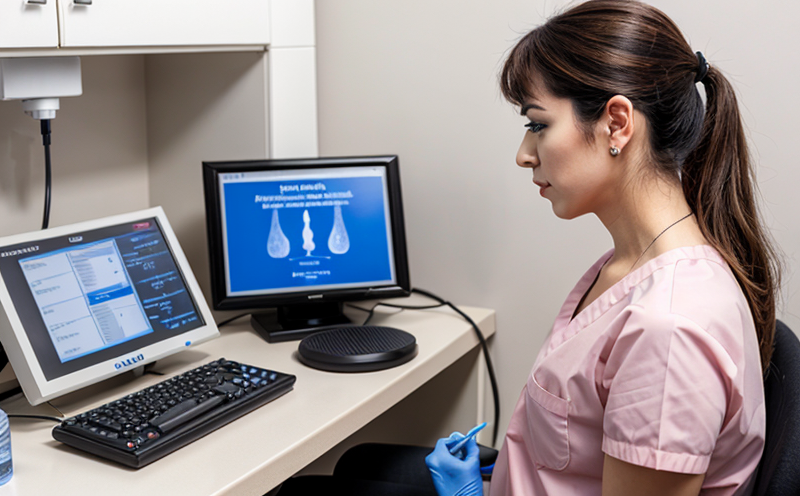Cortisol Testing in Veterinary Diagnostics
In veterinary diagnostics, cortisol testing plays a pivotal role in evaluating adrenal function and diagnosing various endocrine disorders. Cortisol is a glucocorticoid hormone produced by the adrenal glands, which can be quantified to assess stress levels, evaluate pituitary-adrenal axis function, diagnose Cushing's syndrome or Addison's disease, and monitor response to therapy.
The measurement of cortisol in veterinary diagnostics involves several critical steps. Specimen collection typically requires blood samples from animals, ensuring proper handling post-collection to maintain integrity and accuracy. Common specimen types include whole blood, serum, and plasma. Proper preparation is essential; for instance, the use of anticoagulants like EDTA can prevent clotting but may interfere with cortisol stability.
Instrumentation used in cortisol testing includes automated analyzers capable of handling high throughput samples efficiently. Methods such as immunoassays are widely employed due to their sensitivity and specificity. The choice of assay depends on the clinical context, with some methods offering higher precision for quantitative measurements while others provide qualitative assessments.
The interpretation of cortisol levels is complex and involves understanding normal ranges based on species-specific factors like age, sex, and stress levels. For instance, cortisol concentrations vary in dogs and cats due to differences in metabolism and homeostatic mechanisms. Stress-induced hypercortisolism can lead to a wide range of clinical signs including polyuria, polydipsia, muscle weakness, and behavioral changes.
Interpretation also considers the timing of sample collection relative to stressors or therapeutic interventions. For example, the 24-hour urinary cortisol-to-creatinine ratio is often used in diagnosing Cushing's disease, providing a more accurate picture than a single serum cortisol measurement taken under resting conditions.
Reporting results involves not only numerical values but also context-specific recommendations for further diagnostic workup or management strategies. Veterinarians rely on these data to tailor treatment plans and monitor the efficacy of therapeutic interventions effectively.
| Applied Standards | Description |
|---|---|
| ISO 15189:2012 | Ensures laboratory quality management systems meet international standards for accuracy and reliability in cortisol testing. |
| American Society for Clinical Pathology (ASCP) Guidelines | Provide detailed protocols on specimen collection, handling, and processing to ensure consistent results across laboratories. |
| European Federation of Clinical Chemistry and Laboratory Medicine (EFLM) | Serves as a reference for standardizing cortisol testing procedures within Europe. |
The application of these standards ensures that cortisol tests are conducted consistently, providing reliable data essential for accurate diagnosis and treatment decisions in veterinary medicine.
Applied Standards
- ISO 15189:2012 - Ensures laboratory quality management systems meet international standards for accuracy and reliability in cortisol testing.
- American Society for Clinical Pathology (ASCP) Guidelines - Provide detailed protocols on specimen collection, handling, and processing to ensure consistent results across laboratories.
- European Federation of Clinical Chemistry and Laboratory Medicine (EFLM) - Serves as a reference for standardizing cortisol testing procedures within Europe.
The use of these standards ensures that all aspects of cortisol testing—from sample preparation to final analysis—are conducted with the highest level of precision, accuracy, and reliability. This consistency is crucial in veterinary diagnostics where accurate results can significantly impact patient care and treatment outcomes.
Eurolab Advantages
At Eurolab, we leverage our expertise in clinical and healthcare testing to provide comprehensive cortisol testing services tailored specifically for the needs of veterinarians. Our state-of-the-art laboratory facilities equipped with advanced analytical instruments ensure precise and accurate results every time.
We employ highly trained technicians who adhere strictly to international standards such as ISO 15189:2012, ensuring that each test performed meets the highest quality benchmarks. Our commitment to accuracy is further bolstered by regular calibration checks and proficiency testing programs that align our performance with industry leaders worldwide.
Our experienced team of veterinarians consults closely with clients to understand their unique requirements and deliver personalized solutions for cortisol testing. Whether you need routine monitoring or specialized diagnostic support, Eurolab offers flexible options designed to meet your specific needs efficiently.
We also offer rapid turnaround times, ensuring timely delivery of results directly to your veterinary practice. This expediency allows veterinarians to act promptly on test outcomes, thereby enhancing patient care and overall treatment effectiveness.
International Acceptance and Recognition
- Cortisol testing is internationally recognized for diagnosing Cushing's disease, Addison's disease, and assessing adrenal function.
- Results from accredited laboratories like Eurolab are widely accepted across borders due to adherence to international standards.
- The cortisol test findings contribute to standardized protocols in veterinary medicine globally.
The widespread acceptance of these tests ensures that veterinarians can trust the results regardless of location, facilitating seamless collaboration between healthcare providers and improving patient care worldwide.





